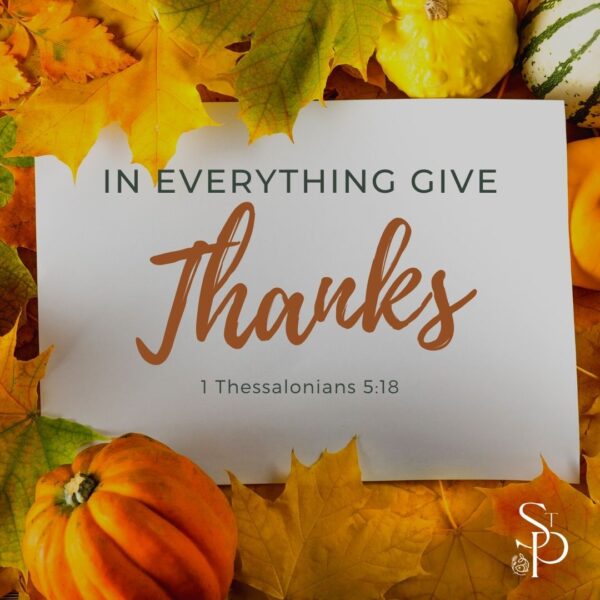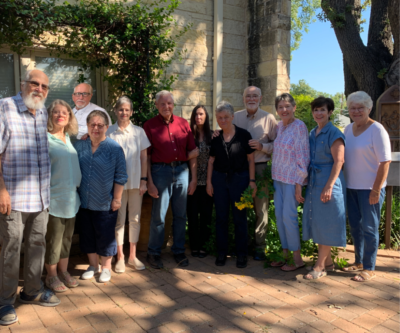
Thankfulness in 2020
What could we possibly be thankful for in 2020?” That’s the question Steve Hartman of the CBS Evening News recently asked his kids in a video. I hope you will take a few minutes to watch that video. It’s a powerful and moving reflection on giving thanks.
I suspect many of us might be asking ourselves the same question Mr. Hartman asked his children. His daughter answered, “Well, instead of saying what we’re thankful for, we could say what was hard for us.” Yes, we could. It’s been a hard year in so many ways. But does difficulty negate or diminish Thanksgiving or giving thanks?
What are gratitude and giving thanks really about? What happens to thankfulness when circumstances are difficult, painful, or not what we want or asked for? St. Paul says we are to “give thanks in all circumstances” (1 Thessalonians 5:18), not just the ones that fulfill our wants and desires.
Maybe gratitude and thankfulness are about more than simply saying, “Thank you,” or counting our blessings. Maybe they aren’t even defined by the circumstances in our life and world. Maybe they are not so much things we say or do but a way of being in this world.
In his book Consolations the poet David Whyte writes, “Gratitude is not a passive response to something we have been given, gratitude arises from paying attention, from being awake in the presence of everything that lives within and without us” (89).
He continues, writing about “taking even one more breath of air,” the miracle of being “part of something, rather than nothing,” and inhabiting “a living world with real faces, real voices, laughter, the color blue, the green of the fields, the freshness of the cold wind, or the tawny hue of a winter landscape.” “Thanksgiving happens,” he says, “when our sense of presence meets all other presences” (89-90). “To see the full miraculous essentiality of the color blue is to be grateful with no necessity for a word of thanks” (90).
Maybe 2020 is asking us to wake up, be present, pay attention. “Being unappreciative,” Whyte writes, “might mean we are simply not paying attention” (91).
Let’s not just give our thanks for gifts received, let’s live our thanks – in every color we see, every face we greet, every voice we hear, and every moment we breathe. If we are really awake, really paying attention, how could we not?
Happy Thanksgiving and peace be with you –
Fr. Mike +



